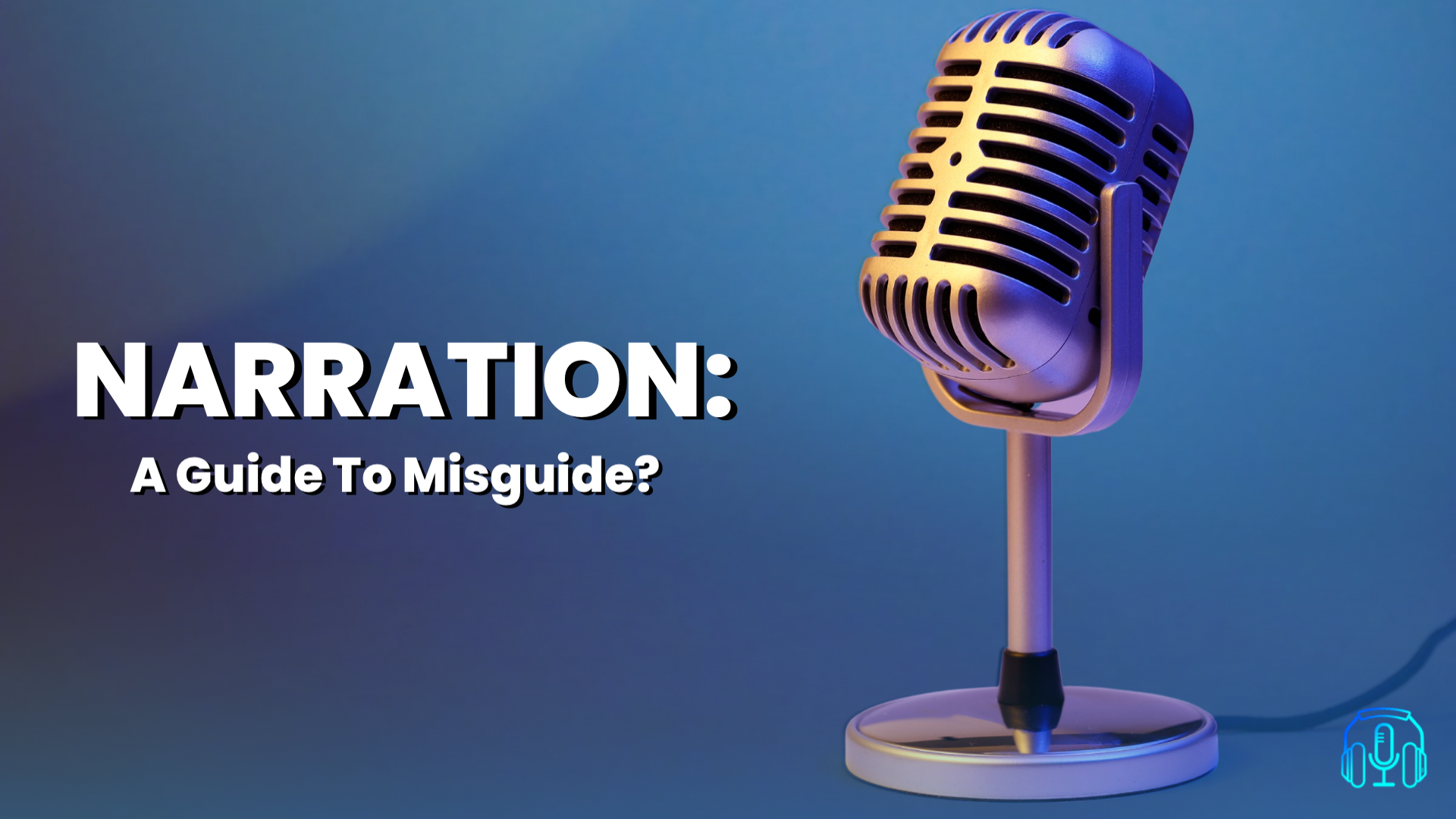“BAM!!!!!”
Person 1- “I think I heard a gunshot in our neighbourhood! Call mom up and ask her to stay safe”
Person 2- “Heard that? That’s the loud annoying neighbour I told you about. Keeps making all kinds of noises with her instruments. Can’t catch a break”

One small sound, two entirely different interpretations. There was no bullet shot in the neighbourhood. The ‘loud’ neighbour wasn’t home at that time. We’re not aware of what happened because Person 1 was too afraid to check and Person 2 has a prejudiced judgement of his neighbour and was quick to make assumptions.
What is a narrative?
A narrative by definition is an account of a series of events or experiences. In simpler words, it's the interpretation of a situation based on one's perspective. But perspectives vary. Different people have entirely different understandings of a situation. While it is expected that people’s point of views differ, this causes a problem when one is passing valuable information or facts to someone else. This chain of misinterpretation results in a mass of people being deceived and confused.
Reliable and Unreliable Narrators
This brings us to the discussion of whether your informant is reliable or not. How can one tell if the information being presented to them is credible or not?
A reliable narration is when you are presented an accurate and complete account of events. This requires the reporter to have a breadth of knowledge on the situation and has covered all possible scenarios that could be true.
An unreliable narrator lacks credibility. In some cases, the narrator might not be aware that they’re misleading the public. These narratives are just biased perceptions of the individual. One's personal views and opinions subconsciously alter what they’ve heard or witnessed, causing their interpretation of the situation to be biased.
How is misinformation spread?
Have you heard of the game Chinese Whispers? In this game, a phrase is given to the first player who whispers this to the next player and so on. The last person who says the phrase out loud usually has a very modified version of the original. In the same way when people communicate, there is a difference in the meaning of what is said and what is understood.
Similarly, in modern day media, the reporters who cover a certain story present their interpretation of it. This interpretation is often influenced by their knowledge on the topic, or the lack thereof.
In other cases, people might manipulate the information to mislead the general audience in an attempt to fabricate their opinions and thoughts. This leads to a huge mass of people being misinformed and basing their opinions and stances on biased or unreliable information. In the same way, the audience that listens to this news creates its own interpretation of it and spreads it around creating a long chain.
This effect is commonly observed in media platforms such as newspapers, channels and articles. Social media, a place where most of the youth gets their information on current affairs and various important topics of discussion, is unsurprisingly used to shape the thoughts of young minds. Various individuals and teams on different social media platforms make groups and spread their prejudiced outlook on sensitive news and topics.In this unethical attempt to influence and control, the opinions that are shaped might be harmful to the general public. Armed with misinformation, people who try to condone it and force their views on other people, actively cause a negative impact on others. The implementation of this is noticeable in religious, political and philosophical views.
While everyone is entitled to their own opinions and stances, the immoral practice of using one's voice or authority to fabricate the views of masses for personal gain is foul on various levels. Opinion stories sell while factual information has a much lower value in the popular marketplace. Despite having all information on their fingerprints, people now are gullible and believe what they hear instead of researching the facts. This habit is exploited by many to spread propaganda or for support.
Need to use ones voice responsibly
The problem is not people having different views. Our opinions and stances are what build our personalities. The problem here is being misled in the first step of the process. Where you might either not have sufficient information or have biased or fabricated information. This holds you back from forming your own opinion.
When you have the opportunity or authority to spread your voice to the masses, it also brings you the responsibility to use the power ethically. The information you spread, the views you share, must have a certain level of credibility and integrity
Alternatively, if you find people being misled on a topic you’re well versed with, you should do your part and spread awareness, make people see the flip side of the coin, open up various approaches to the situation and the different possible interpretations.
People are entitled to their opinions but for the opinions to be truly theirs, they need the right kind of information and news. It is unethical to inhibit this right from people.
Aural provides a platform for people to raise their voice. We encourage people to stand for the right, to put their views forward, to spread awareness among the listeners and help them make their own judgements and form their stance. Want to raise your voice? Want people to know your side of the story? Then make sure you’re ready for Aural! Join Aural as a creator and be part of the select community of initial creators. App launch is right around the corner. We’re at the edge of our seats, are you?
